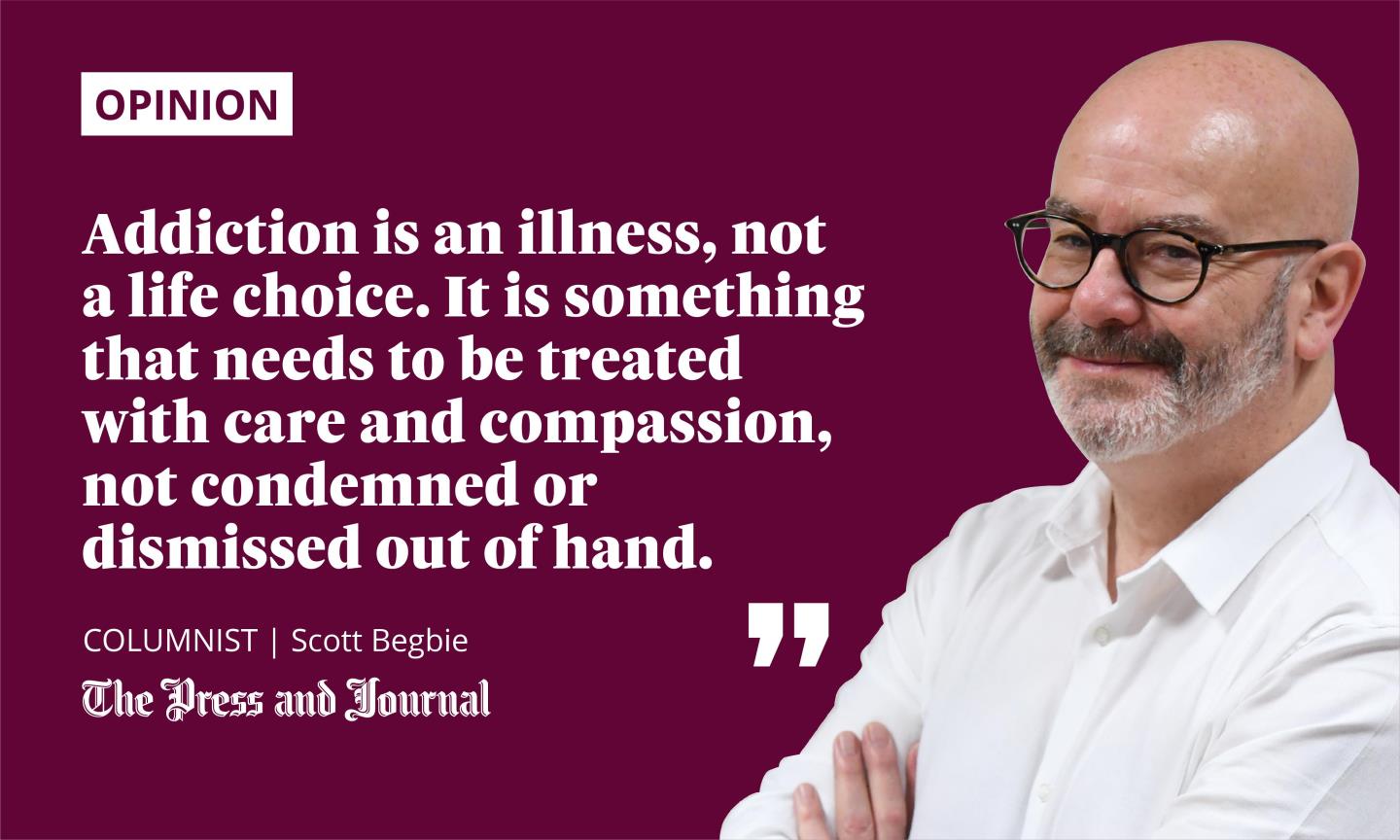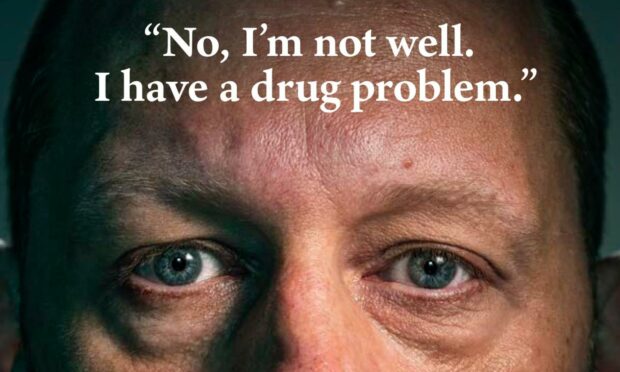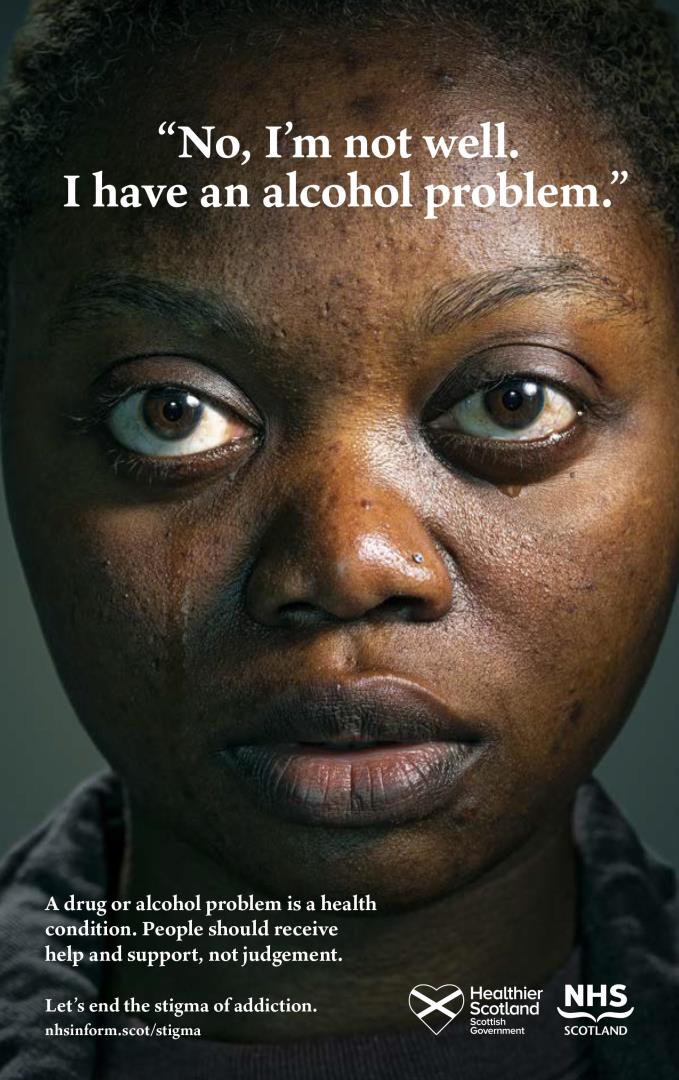It’s easy, isn’t it, to say “just another junkie” when you see someone stotting about in the street, lying on a blanket or making a scene?
Because then we can just tut at and dismiss them, put them out of our mind and move on after we’ve given them a wide berth.
And we’ve all done it, because it’s a reflex reaction – one that comes without giving it much thought.
And therein lies the problem. You see, it’s not “just another junkie”. It’s somebody’s son, somebody’s mum, somebody’s brother, somebody’s daughter.
It’s somebody.

As long as we aren’t seeing the person, we’re not really seeing the problem. Addiction – be it alcohol or drugs – is a health issue and one that the person in front of us is battling every day of their lives.
No one ever wakes up and thinks: “You know what? Today I’ll become dependent on booze. and tomorrow I might give being hooked on heroin a go.”
Addiction can happen to anyone
There are many wrong turns on the path of life that can lead anyone to dark places. It can happen regardless of who you are or where you are from or how much you are loved.
Addiction is an illness, not a life choice. It is something that needs to be treated with care and compassion, not condemned or dismissed out of hand.
So, well done to the Scottish Government for its national campaign to start treating drug and alcohol problems as a health condition and take the stigma out of the equation.
Leading the charge is the plea to stop calling people names like “addict”, “alcoholic” or “junkie”. Instead, we need to talk about the person and their problems with alcohol or drug use.
By dialling down the pejoratives, those who are struggling might be more likely to seek help and less likely to hide the problem for fear of being stuck with a label. It will make it easier for their loved ones and family to be open about what is happening, the impact it has on their lives and to reach out for someone to guide them out of the nightmare.
And we as a society need to open our eyes. How can you not, when you live in a country in the grip of drugs death crisis?
And we as a society need to open our eyes, too. How can you not, when you live in a country in the grip of drugs death crisis?
Last year, 1,339 people died in Scotland because of drug use, the highest on record. That’s a death toll that shames all of us.
When you add in the havoc of alcohol problems, it makes the shadow cast that much darker.
There are, of course, myriad thoughts on how to stop that horrific waste of life, the devastation on families and in our communities. It is a debate which will no doubt rage on relentlessly among the health experts and in the corridors of power.
But the first step is one we can all take. See the person.
Scott Begbie is entertainment editor for The Press & Journal and Evening Express

